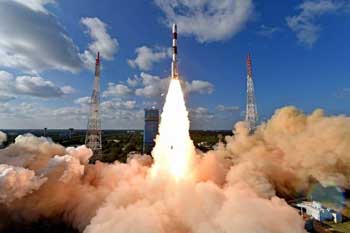Take the case of the Mumbai riots that took place between December 2002 and January 2003. While the 100 accused, mostly Muslims, in the Mumbai blasts are languishing behind bars since many years now, the riots accused, all Hindus, have gotten away with it. It is pertinent to note that over 900 people, mostly Muslims, were ruthlessly mowed down in cold blood on the streets of Mumbai after the demolition of the Babri Masjid in December 1992-January 1993.
A large number of youth from the minority community were arrested after the Mecca Masjid blast in 2007 and were subjected to ruthless torture until last year when some right-wing RSS functionary voluntarily owned up to the responsibility for the blasts.
By the definition provided by the UN Convention on Prevention and Punishment for the Crimes of Genocide, India is the only democracy in the world that has treated its minorities to not one but four genocide killings in a time span of 18 years: Delhi (1984), Bhagalpur (1987), Bombay (1992) Gujarat (2002).
It is horrendous that even after 50years of the United Nations Declaration of Human Rights (UNDHR), in the largest democracy there is still widespread discrimination on the basis of gender, ethnicity and religious beliefs. Worse, the members of the Muslim minority community here continue to be targeted and implicated in cases of terrorism. It is heart-rending to note that every other day there are reports about blood-curdling incidents of police brutality and barbarism against Muslim youth, committed in utter disregard of humanitarian law and universal human rights as well as total negation of the constitutional guarantees and human decency. “Without policing the police, it is near impossible to expect protection and promotion of human rights,” says Banojyotsna Lahiri, a student activist from Jawaharlal Nehru University, New Delhi.
The arrest and incarceration of journalist Kazmi, a veteran journalist who has worked with Doordarshan, BBC, IRNA, UNI and is a regular columnist for Urdu newspapers in India, on apparently unsubstantiated charges, has put a big question mark on the functioning of the law machinery here. Just a few days ago, on March 24, the sleuths of the Special Cell of Delhi Police presented him before the Chief Metropolitan Magistrate at Tees Hazari, without informing his lawyer or his family, three days prior to March 27 when his police remand was expected to end. The court has now remanded him in judicial custody till April 7 and his family is flabbergasted. Police is yet to file a charge sheet in the case, and his supporters have been relentlessly protesting across the country and even abroad. There have been protests in New Delhi, Mumbai, Pune, Hyderabad, Meerut, Lucknow, Ahmedabad, etc. On March 23, a large number of Indian students in UK held a peaceful candlelight vigil outside the Indian High Commission in UK.
Booked under the stringent provisions of the dreadful Unlawful Activities Prevention Act (UAPA), Kazmi was sent to an unprecedented 20 days police remand. Kazmi’s counsel has said that he was forced to sign on the arrest memo hours after the arrest. The police sleuths who arrested him were not in uniform, exposing the illegal nature of his arrest. His family had complained about custodial torture and interrogation by foreign intelligence agencies.
The massive protest march outside parliament is an indication that Muslims in India have finally decided to stand up for their rights and take on the state and its police. One of the community leaders even warned of nationwide agitation should the era of human rights violations continue. There is also a buzz about the march of one million being planned by the Coordination Committee of Indian Muslims. It would be interesting to see how the government deals with it now.
*******
*Syed Zafar Mehdi
The writer is a New Delhi based journalist working with The Hindustan Times. He can bereached at armaan.journo@gmail.com

















Great Artical About Muslim.